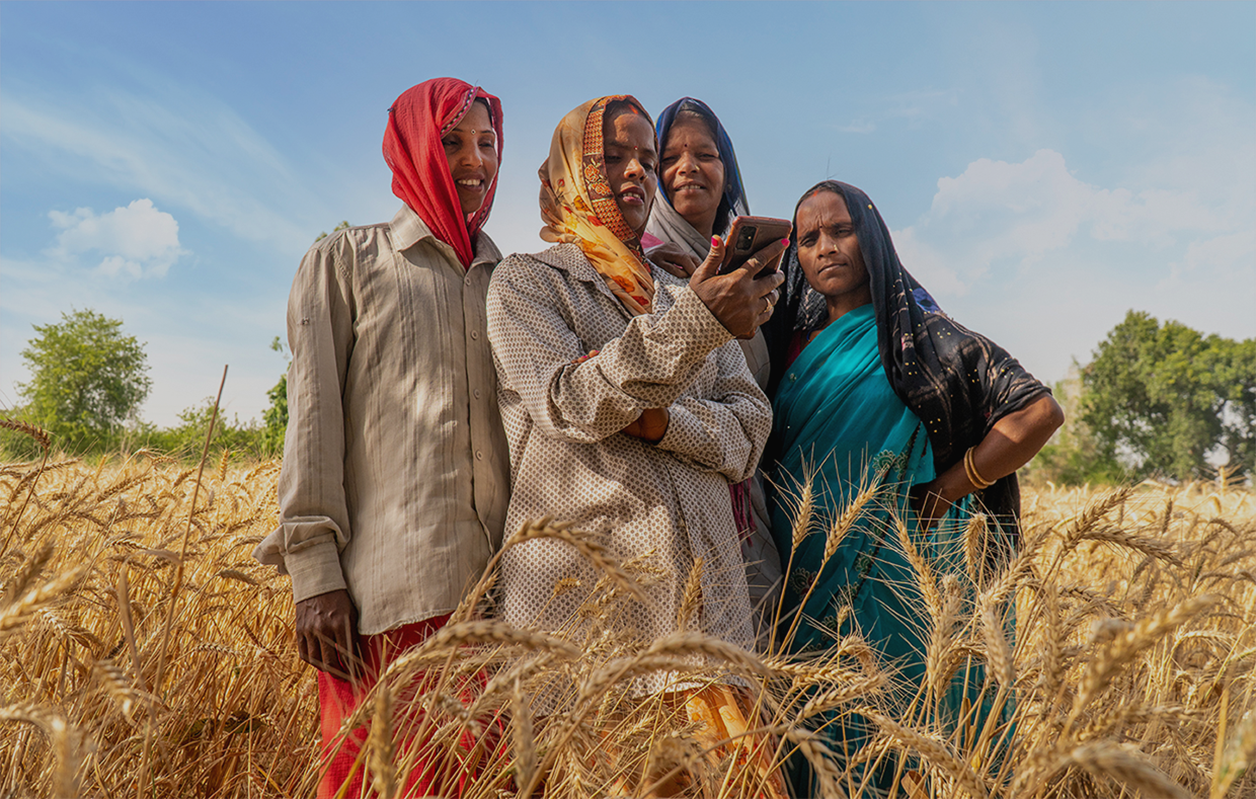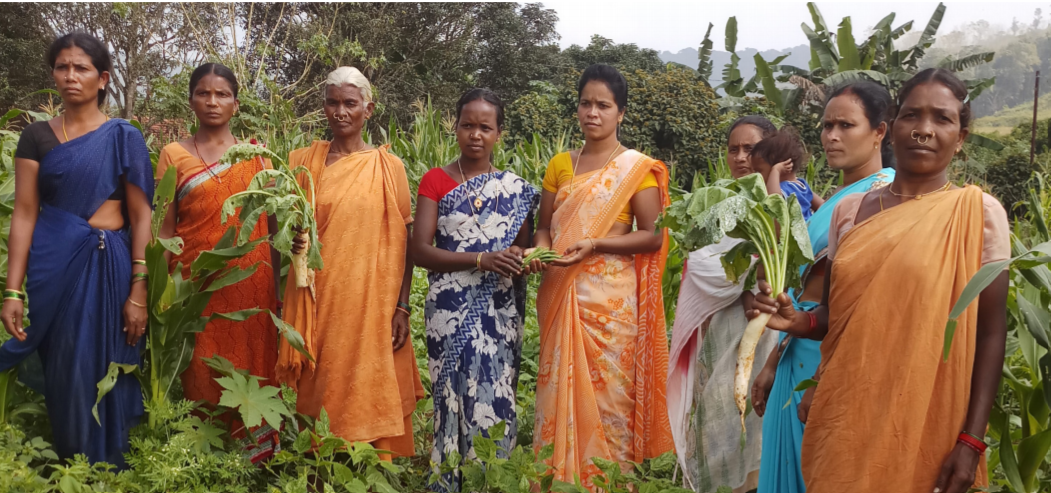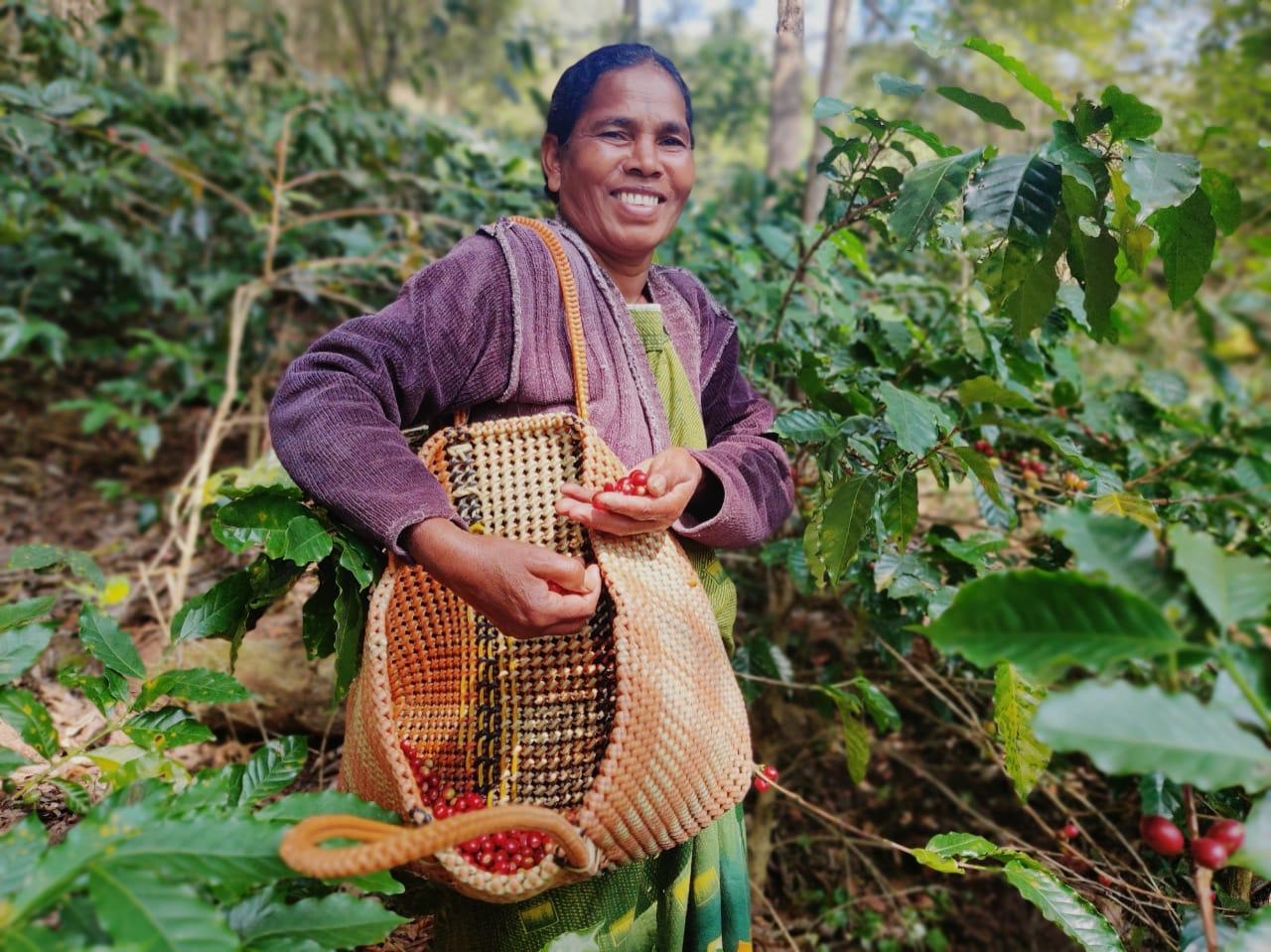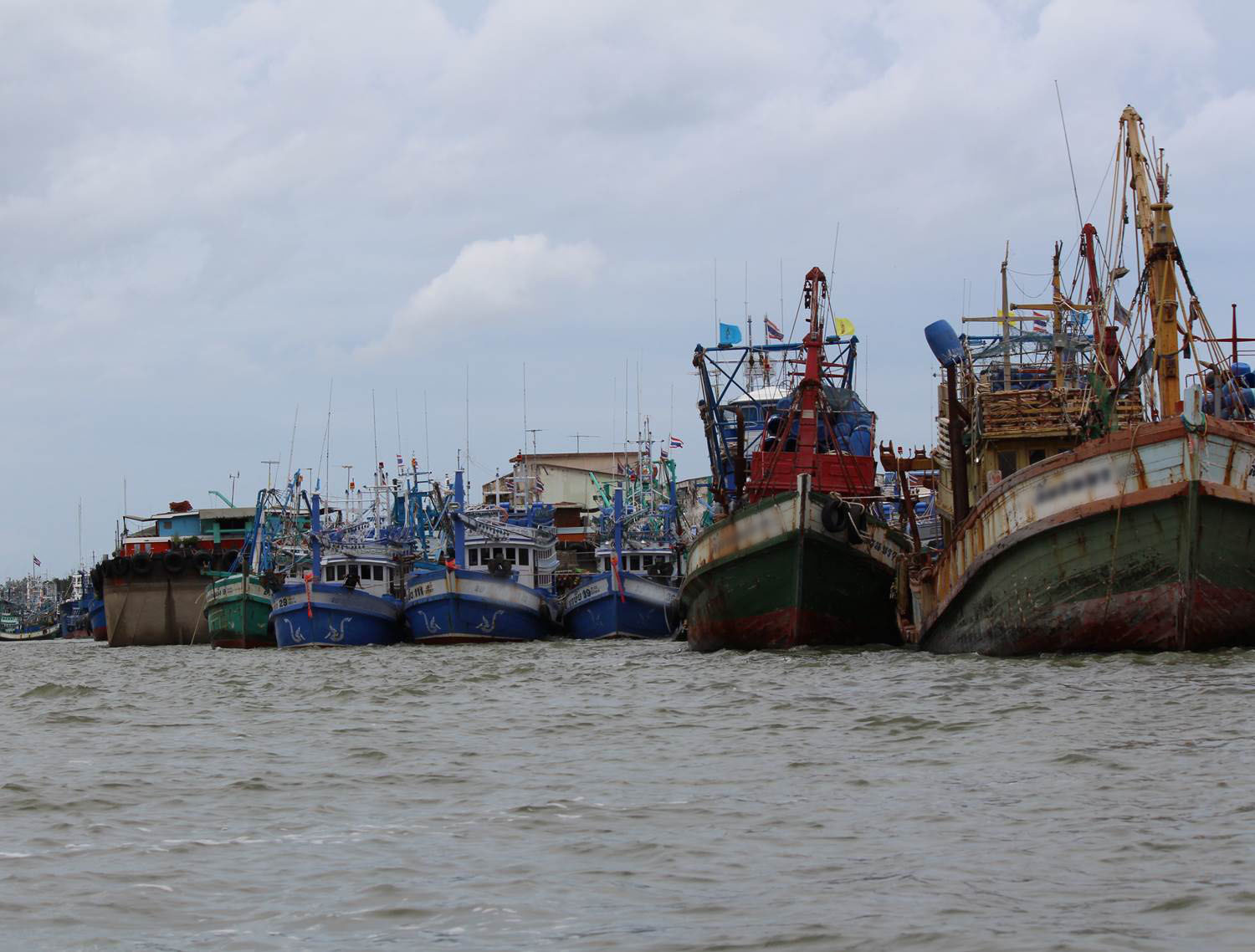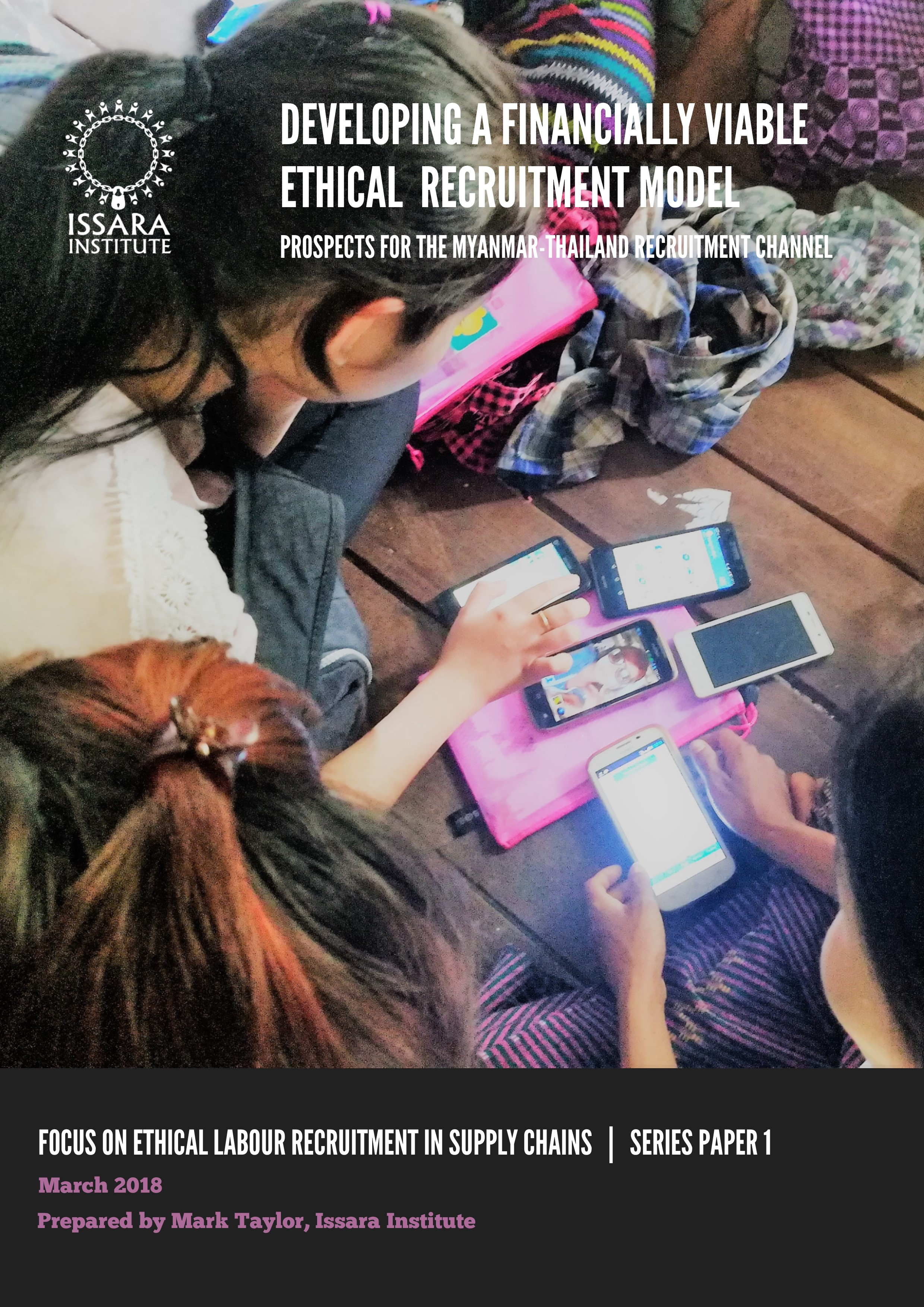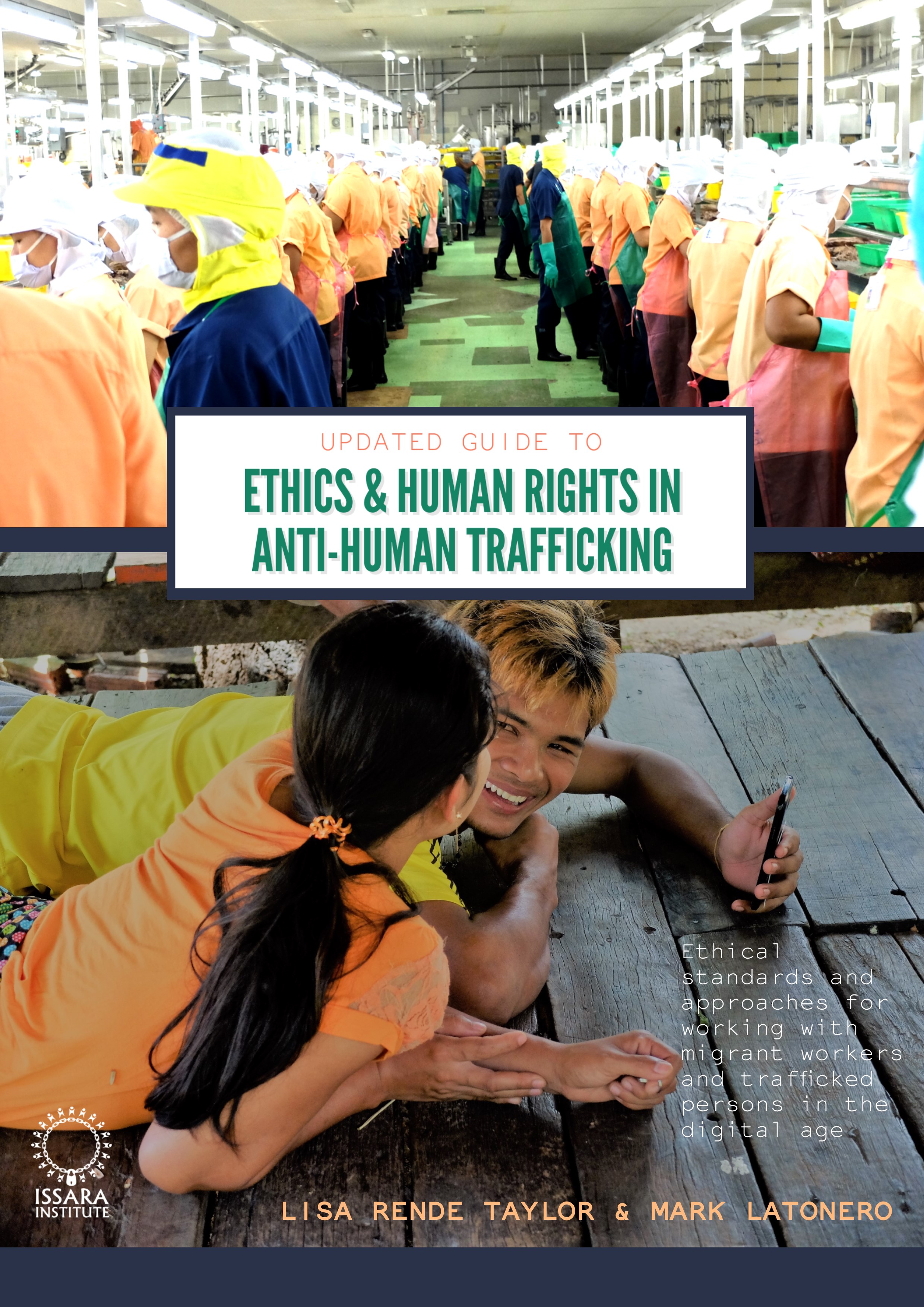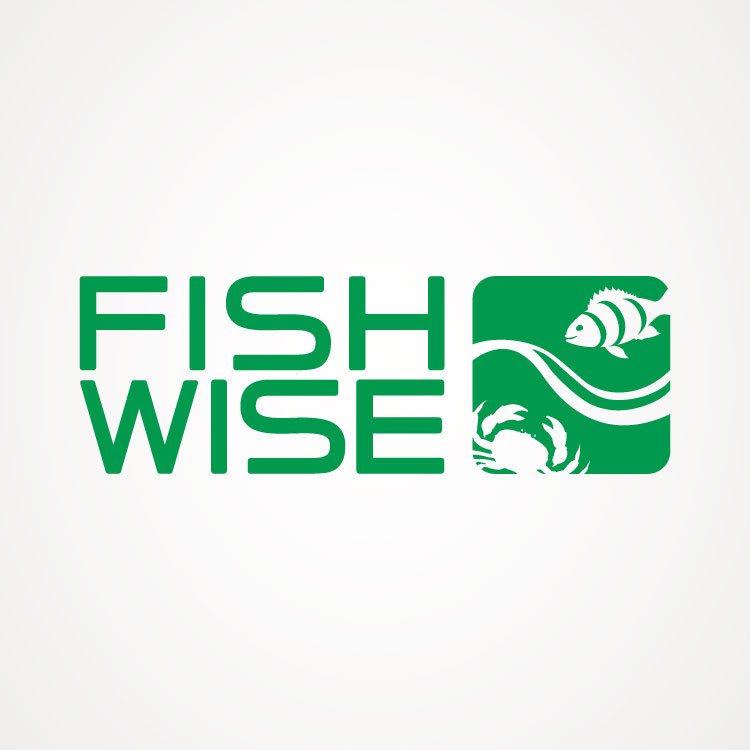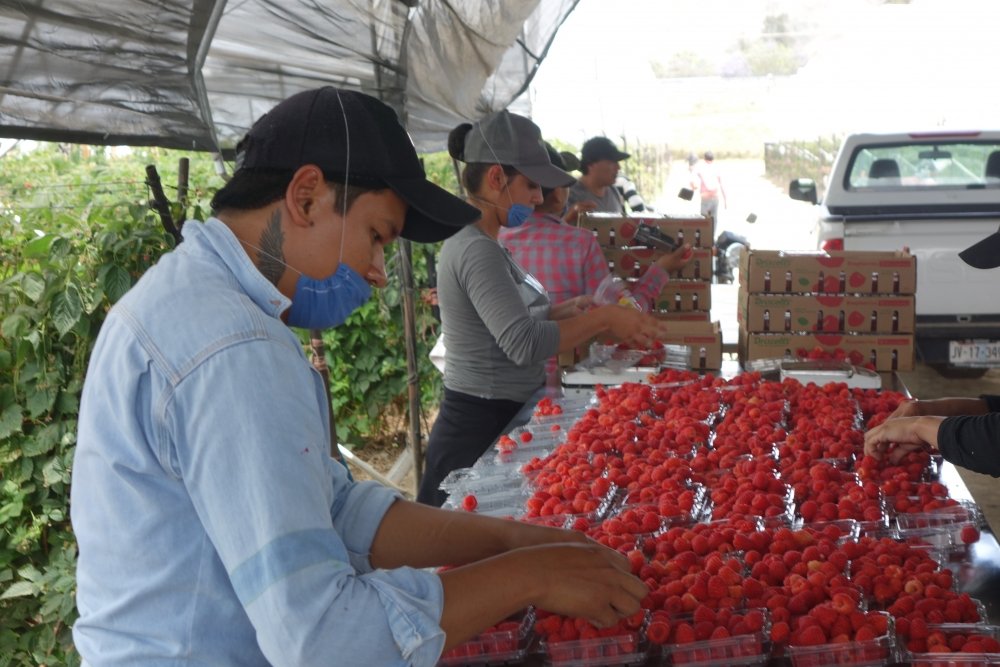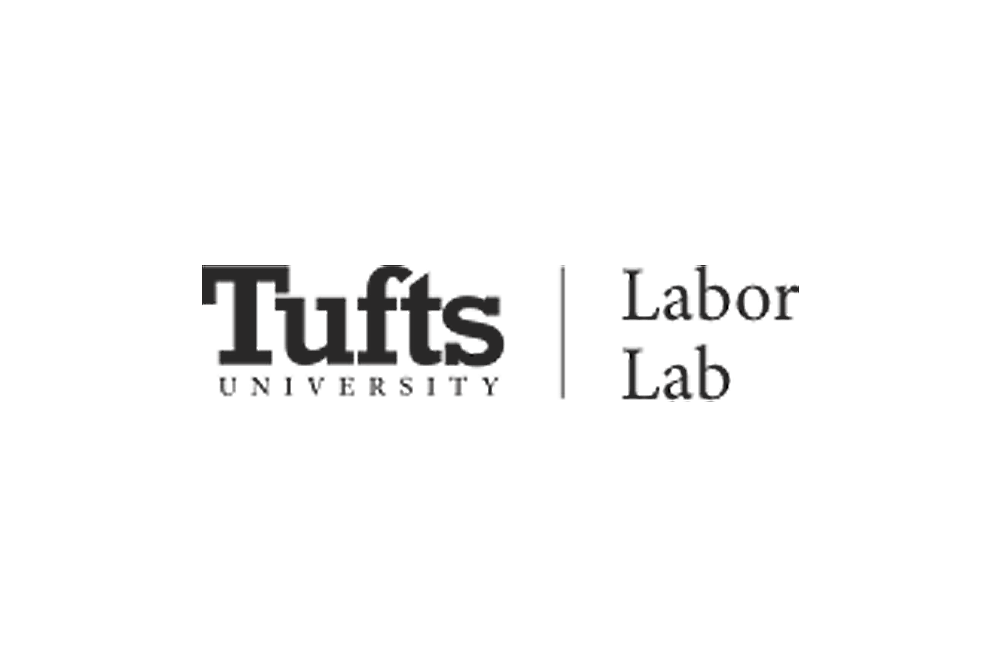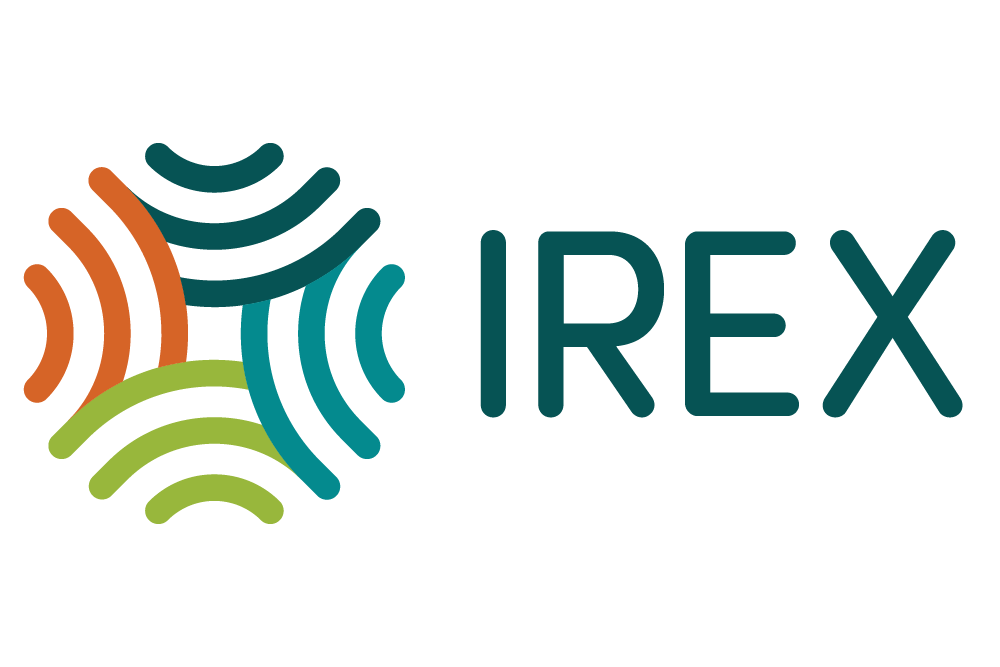People in Supply Chains
We seek to strengthen the demand for responsible labor practices, enhance worker and community voices, invest in programs that advance small holder farmer and entrepreneur livelihoods, and provide opportunities for women in product supply chains around the world.
Walmart is committed to working with suppliers and other stakeholders with the objective to make global supply chains more responsible. The foundation of Walmart’s Responsible Sourcing program is grounded in Walmart’s Standards for Suppliers. These standards set forth expectations that suppliers and their facilities operate responsibly, in ways that protect worker dignity. They align to Walmart’s values of serving customers, respecting all people, striving for excellence and acting with integrity. Learn more about Walmart’s Responsible Sourcing program.
Our philanthropy in this area is focused on strengthening worker dignity by promoting the responsible recruitment of workers and fair and responsible labor practices. We also invest in initiatives that provide market access and economic opportunity to small holder farmers, entrepreneurs and women.

Our Focus Areas
Our philanthropy is focused on three areas:
Through our philanthropic work, we look for ways to advance gender equity across our investments. In supply chains, we look to support efforts that decrease prevalence of discrimination and harassment and increase opportunities for women to advance.
Grantee Spotlight
Tufts University Labor Lab
In 2011, the Walmart Foundation launched the Women in Factories Training Program (WiF) with a goal of training 60,000 women around the world over five years. In 2014, the Walmart Foundation provided a grant to the Tufts University Labor Lab to conduct an impact evaluation of the WIF training. Tufts independently collected data in Bangladesh, Central America and India to evaluate the efficacy of the work. In May 2019, Tufts University completed the five-year evaluation of the impact of the Women in Factories Training program. The evaluation found that the WiF foundational training reduced late days for female workers, increased productivity, and reduced worker turnover. The evaluation also found that the training reduced the gender pay gap by 40 percent and increased a sense of pride in work, teamwork, and problem solving.
To see other grantees in this portfolio, click here.
Walmart.org is focused on strengthening demand for responsible labor practices, investing in data and transparency, enhancing worker and community voice and supporting strong policy and regulation.
Grantee Spotlight
Stronger2Gether
With support from the Walmart Foundation, Stronger Together has launched a multi-stakeholder effort to stimulate a responsible recruitment marketplace for farmworker employment in the U.S. produce industry. The initial two-year program seeks to create demand for responsible recruitment, increase the supply of ethically sourced labor, and improve the recruitment and employment experience for migrant workers. To achieve this, Stronger Together has facilitated stakeholder dialogue and created forums, will provide expert practical guidance for businesses on embedding responsible recruitment through face-to-face interactive training and online tools, is piloting a social compliance certification scheme for Farm Labor Contractors and more.
To see other grantees in this portfolio, click here.
We support initiatives for smallholder farmers and entrepreneurs in emerging markets to help improve their skills, market access and to build resilience. The Walmart Foundation has awarded grants of over $86 million to benefit smallholders in India, Mexico and Central America since 2017. These grants are expected to reach over 1 million smallholder farmers (over 500,000 or 50% women) through programs aimed at enhancing farmer livelihoods and value chains, encouraging the adoption of sustainable agriculture practices, unlocking access to finance, growing formal market linkages, strengthening Farmer Producer Organizations (FPOs) and empowering women farmers in FPOs.
In India, the Foundation surpassed its 2018 goal to invest $25 million over five years, with over $39 million invested in grants designed to reach 800,000 farmers, more than half of them women. To learn more about the collective impact of these grants, read the India Market Access Impact Review or watch the video below:
Expanding on the commitment to improving farmer livelihoods in India, in 2023 Walmart and the Walmart Foundation launched a new commitment in 2023 to fund projects in India designed to help build capacity and advance the economic livelihoods of one million smallholder farmers by 2028 with at least 50% women.
Grantee Spotlight
PRADAN empowers women farmers
Delhi-based non-profit Professional Assistance for Development Action (PRADAN) received a Walmart Foundation grant of $1.9 million in September 2020 to launch its Livelihood Enhancement through Market Access and Women Empowerment (LEAP) program in eastern India. LEAP supports marginalized women to work together in FPOs to adopt sustainable farming practices, diversify and intensify their output, and improve their livelihoods. LEAP aims to reach 45,000 women farmers over two years, benefiting about 225,000 people.
Tanager enhances farmer market readiness
International non-profit Tanager received a Walmart Foundation grant totaling just over $2.6 million to implement a Farmer Market Readiness Program in Andhra Pradesh, India. This program, which launched in 2020, is working with 13 FPOs to help more than 15,000 farmers, including more than 5,600 women, increase their productivity and profitability. It builds upon and strengthens interventions started under a prior grant issued to Tanager from the Walmart Foundation which ran from 2017 to 2020, and helped 17,500 farmers, including more than 5,600 women farmers, increase their yields and market their produce via Farmer Producer Organizations.
TechnoServe improves production practices and market linkages
Launched in 2019 with close to $3 million in grant funding support from the Walmart Foundation, the TechnoServe Smallholder Market Access Program in Central America is working to address the constraints that hamper smallholder farmers from transforming their farms into more profitable ventures and that prevent buyers from tapping into this rich supply of high-quality product. At the production level, the project willtrain farmers in the Good Agricultural Practices (GAP) they need to improve their yields and quality to meet commercial requirements. Beyond the farm gate, the project aims to strengthen the business practices of Farmer Producer Organizations (FPOs) to better connect farmers with formal markets, facilitate their access to financing, add value to their products, and secure the best possible prices for their harvests. The program is designed to sustainably increase the revenues of 5,000 small farmers in Guatemala and Nicaragua by 2022.
Click here to read more farmer stories.
To see other grantees in this portfolio, click here.
Applications are by invitation only for 501(c)(3) organizations (or equivalent organizations outside the U.S.) whose work directly relates to the above focus areas. Unsolicited proposals will not be accepted.
Reference and Research
Check out some great resources and collaborations on how organizations are promoting responsible recruitment of workers in supply chains and providing economic opportunity to small holder farmers, entrepreneurs and women.





